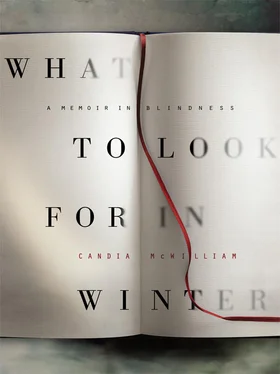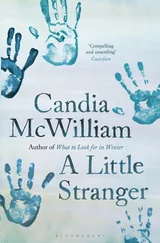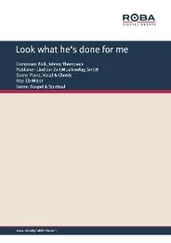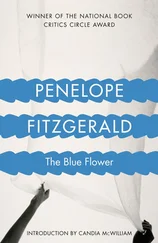Candia McWilliam
What to Look for in Winter
The art of losing isn’t hard to master;
so many things seem filled with the intent
to be lost that their loss is no disaster.
Lose something every day. Accept the fluster
of lost door keys, the hour badly spent.
The art of losing isn’t hard to master.
Then practice losing farther, losing faster:
places, and names, and where it was you meant
to travel. None of these will bring disaster.
I lost my mother’s watch. And look! my last, or
next-to-last, of three loved houses went.
The art of losing isn’t hard to master.
I lost two cities, lovely ones. And, vaster,
some realms I owned, two rivers, a continent.
I miss them, but it wasn’t a disaster.
— Even losing you (the joking voice, a gesture
I love) I shan’t have lied. It’s evident
the art of losing’s not too hard to master
though it may look like (Write it!) like disaster.
One Art by Elizabeth Bishop
Be as thou wast wont to be;
See as thou wast wont to see;
Oberon to Titania
A Midsummer Night’s Dream by William Shakespeare
Femme qui boit du vin
Fille qui parle latin
Soleil levé trop matin
Dieu sait quelle sera leur triste fin
French Proverb
One of the last things my mother gave me was a paper umbrella; it must have been from Japan. Its wooden spars were webbed with an oily paper that smelled of pine resin and fish. When you put the umbrella up, the paper separated from itself with a faint disgustingness of sound, unidentifiable as yet to a child of eight, that would later reveal itself to be that of flesh separating from flesh or the frozen surface of a lake beginning to shiver apart.
My paper umbrella was of little use in Edinburgh, a city with some call for the kind of umbrella that keeps off not the glare of the sun but the fall of the rain. Nonetheless, I loved it. My mother was a woman with too many superstitions, a trait I have inherited, so she didn’t like the umbrella to be put up inside the house. I didn’t want to upset her, so I would stand just outside the house, on the stone step, under my orange paper umbrella, whirling it and looking up through its oily sections, listening to the seagulls mewing over our street.
My mother shook silver in her pocket under the new moon, avoided looking at that moon through glass, said she wouldn’t have hawthorn or peacock feathers in the house, and telephoned on our party line regularly to St Anthony of Padua when she lost things. Or she tried to keep to these strictures. In fact, she seldom had silver in her pocket, the moon went where it wanted to go, and she found herself surprisingly often arranging the hawthorn in vases or making fancy-dress outfits for me with glittering many-eyed peacock feathers she had stolen from the Zoo. St Anthony I cannot speak for. So, she knew what to avoid, but did not quite do it.
Hers was a compressed life, folded back down into itself only shortly after it had apparently emerged into some kind of light. Nonetheless in its shade other lives have grown up, my own and those of my three children. I have the instinct too that she had many friends, though I do not know this, and that people who met her remembered having done so. But that might be wishful thinking of the sort we scatter on the young dead.
Tomorrow this book of mine, which is greatly hers, goes to the printer. It is an account of many kinds of light denied. It is also the account of how certain forms of shade are rich if you are fortunate enough to stay sufficiently long to read them. I have already lived for eighteen years longer than my mother did.
Wanting to surprise her when I was about five, I tried to make purple ice cubes, using violet ink. We had only recently become a family with a refrigerator. Before that, we had had a meat-safe, a sort of individualised Iron Maiden. I took the burning cold ice tray, with its square eyebaths for the water, held in tight form by a metal grid, like the letters in my printing set. Each one I filled with the dense swarming ink and water mixture, black until you spilled it, when it flowered kingly purple. I was acutely conscious that I must be quick as I dosed the small moulds. No shoogling. It occasioned the sort of rapt guilt that making sentences can to a child taught only of the primacy of fact; I was lucky not to be born such a child, though later events were to change that. The private nature of what I was doing was blissful as was the idea that my actions were exactly aimed to delight someone I loved. I closed the ice compartment upon my inky tray of socketed dark water.
I returned to my drawing at the kitchen table and waited for my mother. The tact required from her must have been great. Purple hands covered her small new fridge. She went about her kitchen tasks until such time as it would have been natural to open it, perhaps to get some milk, or some anchovy paste, of which, and smoked cod roe, she was fond (I often wonder whether she and I are really part-time seals). Inside, the shelves and contents of her newly acquired zone of hygiene and modernity were drenched imperially with violet ink.
She took in what I had intended, rather than what I had achieved. She told me that it might be fun — next time — to use food colouring not ink, so that no one would be poisoned. And we could put in some grapes too, or flowers.
So, a short life, but one in which she took time to pay close attention to the ideas of others. She had little, but was much.
This book is the merely paper umbrella that I have been able slowly to erect against the usual human weathers and one surprising cloud — my blindness — over several years. Sometimes as I have variously spoken it or tapped it out, I have felt as though an umbrella of skin held between bones were forcing itself through my person. Why umbrella? Again I have returned to that paper umbrella; shade is the most one can ask, shade from which to see with some kind of truth, neither hectic with sunlight nor sodden to blackness.
The world of addiction and recovery from it is full of necessarily approximate language. Plenty of aesthetically snooty addicts hang offshore from sobriety, unwilling to accept the slogans on offer. I know several. I have been one. It’s too easy, though, to go clever against the pat sayings that offer you some handhold as you fall: ‘I came’; ‘I came to’; ‘I came to see’; ‘Let go and let God’. You have to open up to the possibility that your private pain is not to be held furled and weapon-like, but to be opened out as you fall, parachute not ferrule, so that it may protect another, a collective shelter from a fearful rain.
While we are on weather, observant readers may notice that I have made at least one compass error of grave consequence. That I can think of these errors in any way that might be useful is due to those I love who are here described and to what I have read. The work of Sybille Bedford is seldom far away. My then husband and I had supper with her once. She was formidable and cross. He reminded me of that long gone evening in the winter of this year, 2010, when he had first read this book. He said that it was hard to convey how much I had once had — he was not speaking materially — and how much I did not now have; it is indeed like a cautionary tale or a minatory melodrama. I know that this will not be lost on certain schools of comment. I recall a friend telling me of how she had seen someone look at a photograph of me surrounded by dolls in a magazine and say, ‘Look at her ; her life’s so perfect even her wretched children look like dolls .’
Читать дальше











